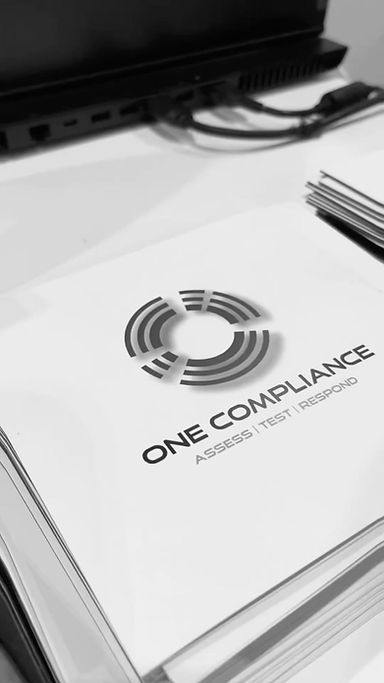
It's a Jungle Out There
In an unpredictable and ever-evolving world of cybersecurity, One Compliance offers practical advice to identify if and where your business is at risk. From penetration testing to 24/7 incident response, we’re your trusted partner for comprehensive protection.
So whether you’re aiming for ISO 27001 certification, Cyber Essentials compliance, or meeting PCI DSS requirements, our team ensures you stay secure and compliant from every angle.
Purple Team
So, what's a purple team assessment, then? Think of it as a joint training mission between your red team (attackers) and blue team (defenders). Instead of working in isolation, they collaborate in real-time, whereby red teams show how they'd break into environments and blue teams respond by tuning detections and assisting in the enhancement of defences.
Incident Response
When things go sideways, who are you gonna call? An incident response retainer means you’re not scrambling for help in the middle of a breach- you’ve already got the experts on speed dial. Whether it’s ransomware, insider threats, or just something weird on the network at 3am, we’re ready to jump in, figure it out, and get you back to business fast. It’s like insurance, but cooler- because we don’t just watch, we act

PCI DSS
PCI DSS - it’s not just another acronym to ignore. If your business handles credit card data, this set of rules is your baseline for not getting burnt. Think of it as the cybersecurity hygiene checklist for anyone swiping, storing, or processing cardholder info. Sure, it helps you tick the compliance box, but more importantly, it keeps you off the front page for the wrong reasons.
Data Protection Officer (DPO)

ISO 27001
Thinking about ISO 27001? It’s more than just a shiny badge- it’s a structured way to show you take information security seriously. Whether you’re bidding for contracts, reassuring clients, or tightening up internal practices, ISO 27001 gives you a recognised framework to manage risk and protect your data. We guide you through the process with practical support that fits your business- no jargon, no fuss, just a clear path to certification.
CISO
Need security leadership but not ready for a full-time CISO? A Virtual CISO gives you top-tier security expertise on tap-strategic guidance, risk management, board reporting, compliance support, and more. Whether you’re scaling up, navigating audits, or just need someone to steer the ship, we plug into your business and provide the leadership to keep your security sharp and your roadmap clear.


Get a Quote or Ask a Question
Get in touch for a personalised quote or consultation.

Who We Are

Human
We are an honest group of real humans working together on the right side of hacking. We have the skills and competence to outsmart cyber criminals, and pride ourselves on achieving this on a regular basis.

Transparent
All our services come with full disclosure and transparency. We will not hit you with sneaky hidden fees or compartmentalise our solutions to charge you extra for the parts of a service you really need.

Fair
We pride ourselves on treating all our clients fairly. We know when cyber attacks hit, it can be an overwhelming and scary time for any company. We don't exploit fear, and always work with you-never against you.














